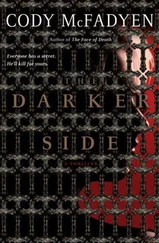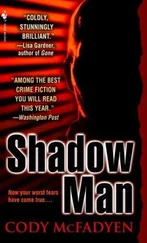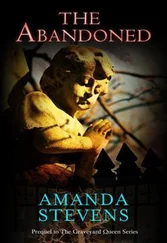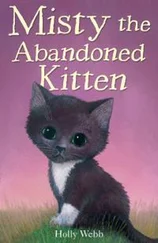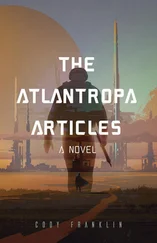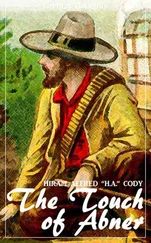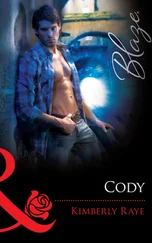Most of the time it runs over her like water, and she is submerged. There is light and there is the hum and there is no thought.
But every now and then, the hum stutters.
These are millisecond flashes. Once, the hum stuttered and she thought a single word: I , she thought.
Then the hum returned, drowning out even the idea of the rest. A stutter comes now, longer than the others. She swims up inside herself, from the bottom of a lake filled with syrup. The man , she thinks.
The man bending over, a needle in my eye. Something is seen.
The humming is coming, a roar in the distance.
Something is seen that’s important. Something about the man.
I should tell them.
Who is them?
Who am I?
I—
The hum covers her, and she is nothing again.
CHAPTER TWENTY-THREE

Earl Cooper, as it turned out, came to see us. He’s standing in our office, something from another time.
He’s wearing a cowboy hat and boots and a flannel shirt and a pair of battered blue jeans. He’s a short man, about five-seven, and he’s broad in the chest but thin in the waist. He’s sixty-two years old and looks every minute of it. He has a craggy face, a huge nose, and, to top it all off, a handlebar mustache that’s been waxed at the ends. It’s a good face, unique, made by its wearer rather than the other way around.
The eyes sparkle with intelligence and have a depth of distance that tells me he’s seen things, done things, gotten dirty in the living of life.
Once you get past all of the exterior apparel, it’s the eyes that reveal the most: This is a vital, intelligent man with a touch of the maverick and a dash of the sad.
“Pleased to meet you,” he says to me, with a bare smile as he shakes my hand. “Heard about your work. Sorry about your family and your face.”
It’s so brief and so genuine that I can take no offense from it. “Thank you, sir.”
Earl Cooper seems like a “sir” to me, the way some older men just naturally are. He’s an elder, a teacher with experience to be listened to, and it’s draped all around him like a cloak of quiet certainty.
“Young James has a quick tongue, but he’s pretty sharp. That’s why I put up with his back-talking. He came to a forensics symposium I was speaking at.”
“Where are you from, sir?” Alan asks.
“Texas. Place near Dallas. But I come out here three months of the year to consult and lecture. Pays the bills and keeps me occupied.”
“Are you a cowboy, Earl?” Callie teases.
He grins at her, and it lights up his face. “Me? Naw. I’m just an academic who wears cowboy boots. I do some shooting, though.”
“What kind?” I ask, interested.
“Handgun,” he says. “Nine mil is my gun of choice.” He rolls his eyes. “Some of my contemporaries think that’s sacrilegious, but I don’t give a hoot. I looked for a gun I liked and that was the one.”
“I use a Glock,” I tell him, pulling my jacket aside so he can see it.
He nods in approval. “Nice weapon.” He squints at me. “You any good?”
“Good?” Callie says. “Honey-love, she’s a natural gunfighter.”
“That a fact?”
“I’m competent.” Shooting is one of the few things I don’t bother to be modest about. “I did some comparisons based on my own scores at the range. I’d probably rank within the top hundred in the world if I competed.”
“For women?” he asks.
“Top hundred, period.”
He grins again, delighted. “That’s something I’d like to see! Most of the boys involved in the gun game are good enough, but there’s a few that’d be pretty upset to be bested by a woman. You should compete sometime.”
I grin back. I like Earl Cooper. “Maybe I will.”
“Have we had enough bonding time?” James asks, rancorous and impatient, as always. Maybe we dislike James, when we dislike him, because he’s our conscience. “Can we get to the matter at hand?”
Earl curls his mouth down. “Curb it a little, son,” he says.
“I’m not your son,” James retorts. “And there are other women locked away in the dark out there, just like Heather Hollister was.”
Earl sobers at this and nods. “Ah yes,” he says, his voice soft. “The impatient hunter, the one who can never put down his gun or take his boots off. I used to be just like you, son. You better learn to turn it off or one day you’ll burn out.”
“The business at hand,” James says, practically grinding his teeth.
“Give it up, Earl,” Callie opines. “This is who James is, sad but true.”
“I guess I knew that. Fair enough, young Jim, we’ll get to the meat of the matter. What can I do for you all?”
I brief him in detail on the case. He listens intently, rolling his mustache at times, asking questions at others. When I finish, he is silent for a while, staring at our Sanskrit scribbling on the whiteboard.
“Well,” he drawls finally, “I’m not sure how much help I can be, but I’ll tell you what I see and then I’ll take all the data home and give it a figure.”
“That’s all we’re asking,” I say.
“What do you know about what I do?”
“Just the broad strokes. Callie is our criminologist. She’s pretty conversant in general forensics, but we bring in experts like yourself for the specialized fields all the time.”
“Fair enough. Geographic profiling is the bastard stepchild of profiling,” he says. “In other words, for many, the jury’s still out. With good reason. There are a lot of factors that can throw a wrench into the works. The main one, in your case, is a lack of data. Geographic profiling is all about data. Number crunching, variables. Your boy has dropped four people in three different states. He selects his victims via the Internet. That’s unhelpful.
“We operate with four basic types in geographic profiling, when it comes to offenders. We have the hunter. He looks for his victims in his home territory. He’s the one my kind of profiling works best for. We have the poacher. He travels away from his home to hunt. He’s smarter, he knows you don’t shit in your own backyard. You have the troller. He’s an opportunist. He’s most likely your disorganized offender. He sees what he likes while he’s out doing something else and he acts on the impulse. Then you’ve got the trapper. He lures the victim to him, controls the situation.”
“There’s a lot of overlap there,” I observe.
He nods in agreement. “Very good, Agent Barrett. That’s correct. The troller can operate in his own home area, like the hunter, or he could only troll when he’s away from home. The traveling salesman as rapist, so to speak. The poacher can create a kind of ‘new home territory.’ He thinks he’s being smart by choosing his victims from somewhere else than where he lives, but then he gets comfortable with that particular area and only draws from it. He could also be unconscious of the decisions that drove him to choose that ‘away’ spot.
“That’s one of the principles that underpin geographic profiling: We tend to operate in our comfort zones, knowingly or not. The theory, then, is that location—both of abduction and dumping—tells us something important about where an offender lives. A famous and simplistic example is the case where bodies were always being found near railroad tracks. It pointed to an offender with an on-the-move, drifter mentality. That helped narrow the search and, though it wasn’t the only factor, contributed to finding the perpetrator, an illegal immigrant who’d been deported numerous times before.”
Читать дальше



